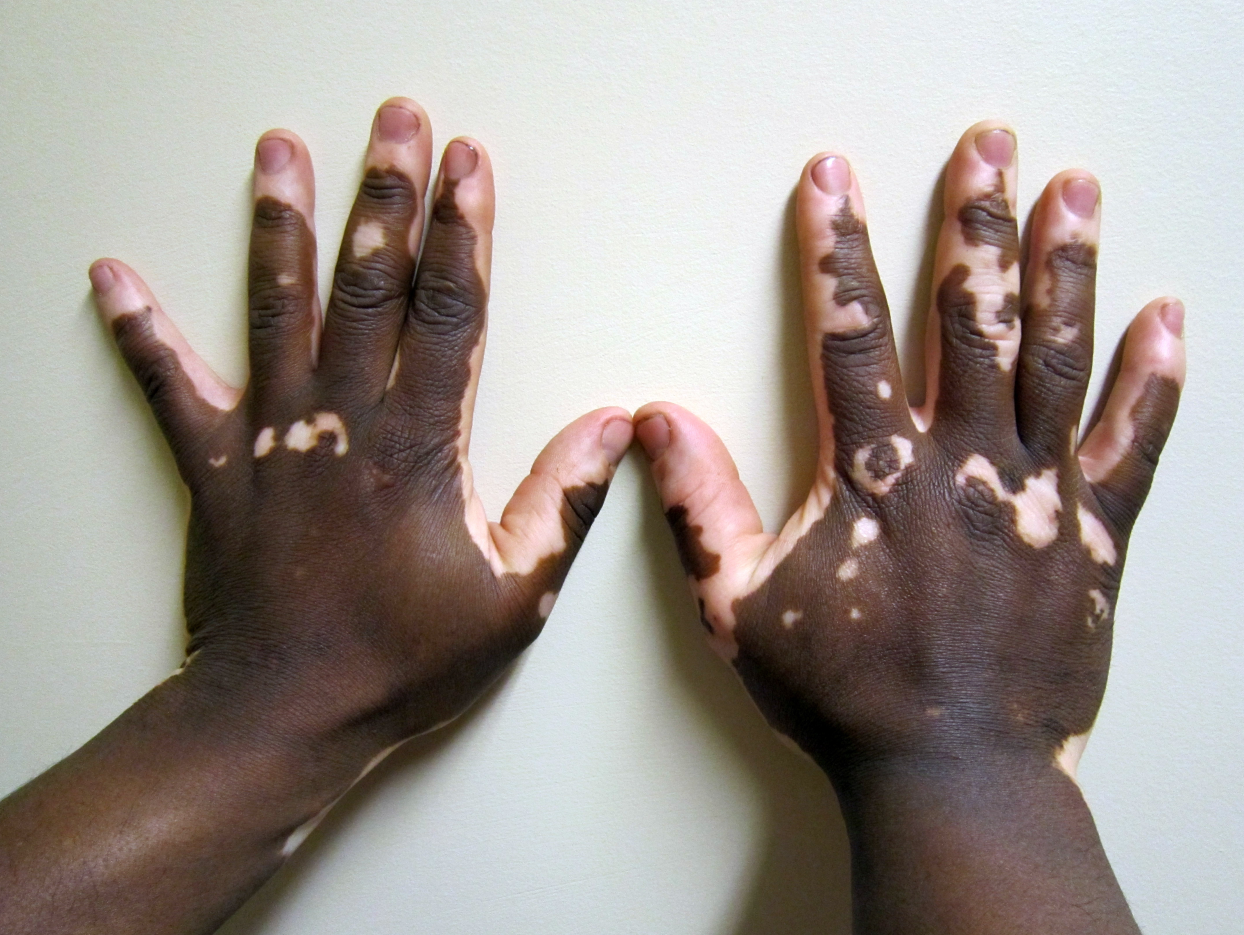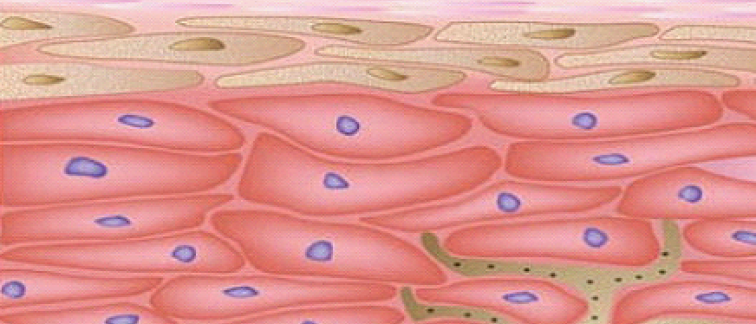Pigment cell research team
The Pigment cell research team at Amsterdam UMC, headed by prof. dr. Rosalie Luiten, is specialized in vitiligo and skin cancer and includes both autoimmunity and cancer immunity research.
Rosalie Luiten

Vitiligo
Pigment cell disorders, such as vitiligo, are characterized by changes in skin pigmentation. Vitiligo is a depigmenting skin condition, mediated by autoimmunity against skin melanocytes. The visibility of white skin lesions in vitiligo patients and patients’ uncertainty on the disease course can have a major impact on the quality of life.
We aim to understand the pathogenesis of vitiligo in order to improve treatment options for patients. We are investigating new therapeutics for vitiligo, as well as the patient perspective on vitiligo treatment. During the pandemic, we explored the risk of COVID-19 for vitiligo patients and patients with other immune mediated skin diseases.
Vitiligo and melanoma
We found that vitiligo patients have less risk of getting melanoma and other skin cancers. Conversely, melanoma patients who develop vitiligo have an improved survival. We are exploring the relationship of vitiligo and melanoma, to develop new types of immunotherapy for melanoma by the induction of vitiligo-associated immunity. We are also studying vitiligo as a potential biomarker for immunotherapy response of melanoma patients.

Approach
We perform a wide range of research methodologies, including experimental and translational research on immunological, biochemical, molecular and cell biological mechanisms, as well as preclinical research in disease models and clinical or epidemiological research in patients.
Collaborations
To achieve our goals, we collaborate with a large network of dermatology and melanoma research centers in the Netherlands and abroad (eg. the IO-GEM melanoma consortium), as well as with patient associations (vitiligo.nl, Stichting Melanoom). Our research is part of Cancer Center Amsterdam and Amsterdam institute for infection and Immunity.
Science and society
We also provide public information on pigment disorders for patients, professionals and the general public via Pigmentfonds Nederland.
Group members
Nicoline Post MD,PhD student
Studying innovative treatments for vitiligo, vitiligo-related immunity and susceptibility to COVID-19.
Alex Rooker, PhD student
Studying the relationship of vitiligo and nonmelanoma skin cancer.
Emma Holtappels, PhD student
Studying the relationship of vitiligo and nonmelanoma skin cancer and innovative approaches to induce tolerance in vitiligo.
Nathalie van Uden, Research technician
Specialized in cellular immunology and flow cytometry.
Saskia Chielie, Research technician
Specialized in cellular immunology, flow cytometry and clinical research management (BROK).
Jop Vreeken, Research technician
Specialized in mesoscale, murine models and immunohistochemistry.
Wouter Ouwerkerk PhD, Bioinformatician
Investigating genetic biomarkers for response to immune checkpoint inhibitors in melanoma patients (IO-GEM).
Walbert Bakker PhD, Biologist, staff member
Supervising/working on vitiligo and skin cancer projects.
Albert Wolkerstorfer MD PhD, Dermatologist
Specialized in pigment cell research and laser dermatology.
Marcel Bekkenk MD PhD, Dermatologist, Department Head
Specialized in skin cancer and pigment cell research.
Rosalie Luiten PhD, Group leader & Head Lab. Experimental Dermatology
Key publications
View the publications of the Amsterdam UMC Pigment cell research team at Pubmed.
Below you will find a few recent publications:
- Addition of cell suspension transplantation to UVB and topical treatment in non-segmental vitiligo: a randomized controlled study
- Immunity against Non-Melanoma Skin Cancer and the Effect of Immunosuppressive Medication on Non-Melanoma Skin Cancer Risk in Solid Organ Transplant Recipients
- The Risk of Keratinocyte Cancer in Vitiligo and the Potential Mechanisms Involved
- Trained immunity in the pathogenesis of vitiligo
- Lower Skin Cancer Risk in Vitiligo: DNA Repair as Potential Mechanism?
- NB-UVB phototherapy response of different body regions in non-segmental vitiligo
- Presence of Skin Tissue-Resident Memory T Cells in Human Nonmalignant and Premalignant Melanocytic Skin Lesions and in Melanoma
- IFN-γ-induced PD-L1 expression on human melanocytes is impaired in vitiligo
- A secondary role for hypoxia and HIF1 in the regulation of (IFNγ-induced) PD-L1 expression in melanoma
- Immunophenotypic Analysis Reveals Differences in Circulating Immune Cells in the Peripheral Blood of Patients with Segmental and Nonsegmental Vitiligo
Contact information
Keywords
Autoimmunity | Cancer immunity | Immunotherapy | Vitiligo | Melanoma | Skin Cancer

